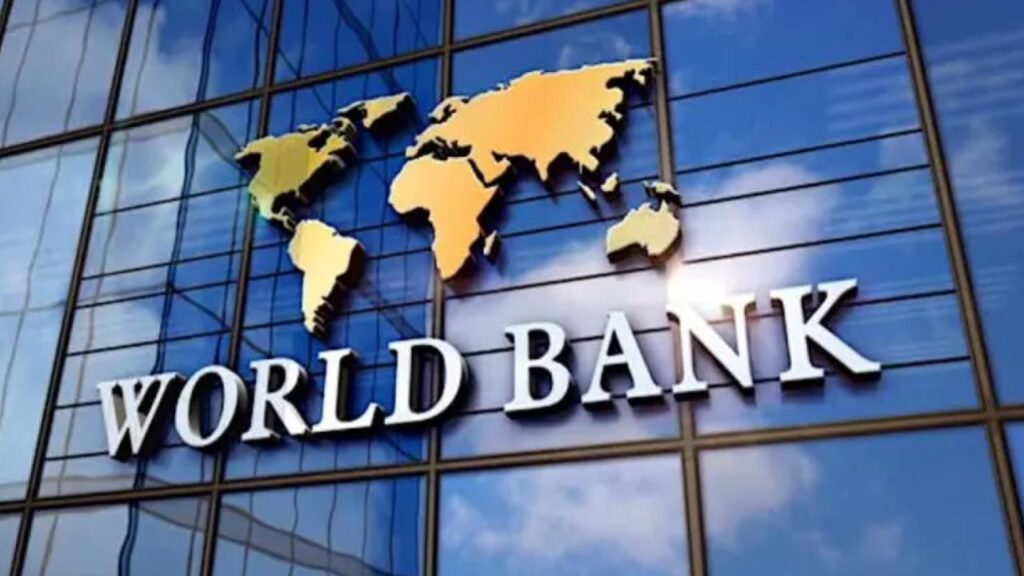In June 2025, the World Bank made waves by committing a massive $1.5 billion loan to South Africa, aiming to reshape the country’s infrastructure and fuel long-term economic growth. This development has major implications, not just for South Africa but for the global economy. But what does this investment mean for you, the investor, the entrepreneur, or even the everyday citizen?

World Bank’s Massive Investment in South Africa
| Key Detail | Information |
|---|---|
| Loan Amount | $1.5 billion USD |
| Purpose of Loan | Modernizing South Africa’s energy and transport infrastructure |
| Specific Areas of Focus | Energy security, freight transport efficiency, low-carbon transition |
| Expected Outcomes | Creation of up to 500,000 jobs, attraction of private investment, improved public services |
| Loan Terms | 16-year maturity, 3-year grace period, interest rate of 6-month Secured Overnight Financing Rate (SOFR) + 1.49% |
| International Support | Germany pledges €10 million for trust fund |
| Global Impact | Boost to South Africa’s economic growth, increased international collaboration |
The World Bank’s $1.5 billion investment in South Africa is a game-changer for the country’s economy and could serve as a model for infrastructure projects worldwide. With job creation, private investment opportunities, and a focus on green energy, this loan holds the promise of a brighter, more prosperous future for South Africa and the global economy.
What Is This Investment All About?
Why South Africa?
South Africa has long been considered the economic powerhouse of Africa, but it has struggled with several major issues that have slowed its growth. With high unemployment, sluggish GDP growth, and a crippling lack of modern infrastructure, South Africa has been unable to reach its full potential.
The World Bank’s $1.5 billion loan comes at a critical moment. It is designed to address some of the country’s most urgent needs, focusing on improving energy security and freight transport efficiency. These are two areas where South Africa has faced long-standing challenges that have held back the economy.
What Will the Loan Fund?
- Energy Security: South Africa has an unreliable power grid that often leads to blackouts. The World Bank’s investment will help improve the energy infrastructure, attracting private investment in electricity transmission and solar power projects. This is crucial for businesses and households that rely on a steady power supply to function.
- Freight Transport Efficiency: South Africa’s transportation sector, particularly rail, has been riddled with inefficiencies and bottlenecks. This loan will modernize the freight transport system, especially through Transnet, the state-owned logistics company. Improving these systems will make it easier to move goods within South Africa and to export markets around the world.
- Low-Carbon Transition: As the world moves toward sustainability, South Africa is making a concerted effort to reduce its reliance on fossil fuels. This loan will fund low-carbon technologies, providing a much-needed boost to green energy projects.
The Loan’s Impact: On the Ground and Across the Globe
1. Job Creation: A Win for South Africans
One of the most important aspects of this loan is its potential to create jobs. The World Bank has forecast that these infrastructure improvements will result in the creation of up to 500,000 jobs by the early 2030s. This is a big deal for a country with a high unemployment rate.
Jobs will be created across various sectors, including construction, logistics, energy, and technology. As a result, South Africa’s youth population, which struggles with high unemployment, could see better opportunities for employment and career advancement.
2. Attracting Private Investment
Another key benefit of this investment is that it will help to attract private sector investment. By modernizing key state-owned enterprises and creating more efficient infrastructure, South Africa will make itself more attractive to foreign investors. This will lead to increased technological innovation, new business ventures, and more financing for both local and global companies.
This also means more economic stability, which is good news for South Africa’s stock market, bonds, and currency. Investors looking for emerging markets will likely turn their attention to South Africa as a result of these improvements.
3. Boosting Public Services and Economic Growth
With better infrastructure, services such as healthcare, education, and transportation will improve for South Africa’s citizens. Improved public services mean faster, more reliable access to essential needs for everyday people. Whether it’s getting to work on time or ensuring that hospitals have the energy they need to function, these improvements will have far-reaching effects.
Additionally, as infrastructure gets better, South Africa’s GDP growth is expected to increase. A more efficient economy is able to produce more goods and services, leading to increased prosperity.
How Will This Affect the Global Economy?
A New Chapter for Africa’s Growth
South Africa’s success has always been tied to the overall success of Africa. As the most industrialized country on the continent, the progress made here can have a ripple effect throughout the region. A thriving South Africa can help improve trade, investment, and even job creation across neighboring African nations. This loan is, in a way, an investment not only in South Africa but in the entire African continent.
Global Energy Transition
The World Bank’s focus on supporting South Africa’s low-carbon transition is also significant. The global move toward clean energy is intensifying, and as a leader in this transition on the continent, South Africa’s success will encourage other nations to follow suit. This is good news for climate change mitigation efforts worldwide, as South Africa can become a role model for renewable energy projects in the region.
Moreover, as countries like South Africa make strides toward sustainability, international investors will be more likely to direct capital toward green projects in Africa, further pushing the global energy transformation.
Practical Advice for Businesses and Investors
What Should Investors Do?
- Watch the South African Market: Investors who are already in the South African stock market or are considering it should pay close attention to these developments. As infrastructure improves and the economy strengthens, expect to see growth in key sectors, including energy, logistics, and construction.
- Look for New Opportunities: With the modernization of South Africa’s logistics sector, businesses that rely on efficient transportation (like e-commerce companies or retailers) will benefit. Those looking for new investment opportunities should consider transportation infrastructure stocks or companies involved in green energy.
For Entrepreneurs: Be Ready for Growth
If you’re an entrepreneur or small business owner in South Africa, this is a good time to plan for future growth. New infrastructure projects will make it easier to do business, get products to market, and even improve customer service. Consider focusing on technology and sustainability as these will be key growth areas moving forward.
FAQs
How will this loan affect South Africa’s debt?
The World Bank loan is structured with favorable terms, which means it won’t put undue pressure on South Africa’s debt. The long repayment period and low interest rate will allow South Africa to manage its finances effectively.
Will this loan impact South Africa’s currency?
Yes, the increased investment and confidence in South Africa’s economy could lead to an appreciation in the South African rand. Investors tend to favor countries with improved infrastructure, leading to a stronger currency.
Can other countries benefit from this model?
Absolutely. South Africa’s infrastructure improvements can serve as a blueprint for other emerging economies looking to modernize their infrastructure while encouraging private investment.








